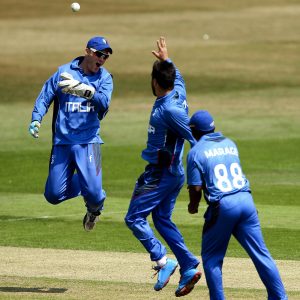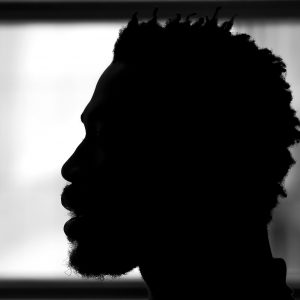Bavuma’s burden and the dearth of Black batsmen
Temba Bavuma’s uncle, who watched the Proteas captain develop into the successful cricketer that he is, explains what makes him a good leader and what is going wrong in nurturing Black talent.
Author:
6 April 2021

As soon as he could walk, Temba Bavuma had a bat in his hand, getting balls thrown at him by his grandmother. Around him, he had uncles who played the game with passion and purpose, and they soon introduced the young boy to both the fundamentals and the complicated techniques a batsman must master to play cricket at a competitive level.
Surrounded by encouragement and patience, it was inevitable that Bavuma, recently appointed captain of the South African men’s national team, would fall in love with the sound of bat on ball.
“He’s always been determined,” says Tengo Sokanyile, Bavuma’s uncle. “He’s spent so much of his life playing with people older than him, or bigger than him. That never intimidated him. In fact, I would say it brought the best out in him.”
Bavuma’s father, Vuyo, is as passionate as anyone in the family about his son’s career, but he has a long-standing stance to not make media comments about Temba. In his lieu, the engaging uncle Tengo provides the family perspective.
In isiXhosa, Bavuma’s home language, they say “ndizakubonisa” – I’ll show you. Bavuma has lived by that mantra since he was a small boy in Langa, Cape Town, and later in Johannesburg.
“One thing that the current generation has lost is the joy of street cricket,” Sokanyile says. “It is such an integral part of cricket development, because you just don’t know who will turn up.”
He then paints a perfectly imaginable scenario of a nine-year-old Bavuma facing boys as old as 15 bowling full tilt at him. “You can imagine what that does for a young kid. If your technique can start handling people so much older and bigger than you, you know that you are on the right track.”
Related article:
Sokanyile, Bavuma’s uncle on his mother’s side, has a special relationship with his nephew. They unpack the game over long phone calls or on the golf course, but it comes from a place of pride, not pressure. The encouragement Bavuma received from a young age birthed the punchy strokes that have become his trademark.
On the storied streets of Langa, there was a ragged patch of tar that Bavuma and his friends used to call “Karachi”, owing to its resemblance to a pitch on its fifth day of play. To perform against a spinning and spitting ball from that potholed patch required a certainty of feet and hands, and Sokanyile insists that this is a major reason for the confidence Bavuma retains against spin.
“Technique is so important. You know, we all played this game. We all know how hard it is to be a batsman,” he says. “I despair at the way that development systems and targets try to bring Black teenagers and fast-track them into teams or prestigious schools. It’s actually too late by that age.
“Batting is hard. Unnatural, even. So you have to learn the fundamentals right away. It’s so many elements that have to come together, and you can’t be learning or perfecting them on the job. We don’t produce enough Black batsmen because the intervention comes too late for so many of them.”
Showing grit
There is a deeply symbolic scene in the cult movie Men of Honor in which the character Carl Brashear, played by Cuba Gooding Jr, is trying to become the first Black diver in the United States Navy. There are many obstacles in his path, but the underwater assembly of a pump from parts lowered to each diver in a bag perhaps best illustrates the hardship for a young Black batsman hopeful.
Brashear’s bag is cut open and his tools scatter all around in the freezing water. To graduate, a diver must emerge with an immaculately assembled pump. Brashear, grimly determined to succeed despite the obstacles, is underwater for hours. And yet, he returns with the pump fully assembled, shivering with cold but having shattered societal barriers. Batting is not a matter of life and death, but the obstacles on the way to the top have taken many casualties.
Bavuma is seen as a beacon of Black batting potential, the poster boy of what could be. He has expressed how heavy that burden is before, yet he has also embraced the responsibility that comes with his position. That was even before he assumed the Proteas captaincy in limited-over formats as well as serving as the deputy in Test cricket.
Related article:
His development is often lazily summarised as another example of township-private school success, but Bavuma was no rough diamond by the time he was handed the St David’s Marist garb in Inanda, Johannesburg. By the time he was 12, his technique was as familiar to him as his native tongue and customs.
“The most important step in his development was his mother taking the advice to move him from Pinelands to SACS [South African College Junior School],” Sokanyile says. “It was a massive financial burden, but getting him into a school where he had provincial players as coaches was vital. SACS polished what the streets had done, and you could see that he was a promising player before he got to high school.”
That financial burden, that sacrificial punt on a young boy, is one that sadly too many Black families cannot carry. Cricket, particularly batting, is expensive to get into properly. It is an insurmountable barrier for a vast chunk of the population, which is why the dearth of Black batting talent persists. There simply has to be a more enlightened path towards development if there is to be a change.
For Bavuma, there are fresh challenges on the horizon. The rapidly approaching T20 World Cup is the initial priority, followed by the 50-overs World Cup not long after in 2023. There is an evolving team identity to solidify, and wins under the belt are required to restore public confidence in his team. Personally, he will want to make the contributions that will disperse any doubts about his ascension to the high office.
Siya Kolisi comparison
These are testing times for South African cricket, but Bavuma has a pride of Lions’ players in his squads. That familiarity will help, especially in the periods of isolation when a captain must plot his team’s path to the next level.
He has taken that same determination into many facets of his life and career. As a pastime, Bavuma plays golf. A few years ago, when the bug had just bitten, he was a mid-handicapper. Competent but by no means commanding. Now, however, he is a single-figure golfer, quietly obsessed by the meticulous attention to detail that the game demands.
The solitude and accountability that comes with golf is not too dissimilar to life at the crease of international cricket. More than that, a golfer’s score lives and dies by the decisions made off the tee box. There has to be a plan – and the occasional bravado to go for shots that some might avoid.
Risk. Reward.
Sokanyile, himself an avid golfer, says those traits are what will make Bavuma an excellent captain for South African cricket. “He’s a very good golfer. But he knows he will get a good game against me! He’s had leadership qualities in him for a long, long time. He’s articulate, he’s engaging and, most importantly, he’s won trophies and matches as a leader. That’s very important, because players know that they can win things with him.”
The Lions have made winning trophies a habit in recent years, and Bavuma has been central to that. Winning is the most durable currency in sport.
Related article:
There have already been comparisons to Siyamthanda Kolisi, the Rugby World Cup-winning captain who also defied similar odds. They both have the respect of their colleagues, a fierce will to win and the conviction that sport can change lives.
Bavuma and Kolisi could write books on the burdens of Black athletes who seek to shine in a performance environment. In the same breath, they could also write chapter upon chapter on the number of people who have opened doors and hearts to allow them to reach the pinnacle of their potential.
Sokanyile adds that to observe the deeply special relationship between Bavuma and his mother is a beautiful thing, fuelled by a mother’s love and a son’s respect. The South African captain knows better than anyone how much was sacrificed to give him the tools to reach the heights his talent promised. As Brashear reminds us in Men of Honor, a son never forgets.
For now, however, Bavuma simply wants to follow in Kolisi’s considerable footsteps and rewrite history on an international platform.



